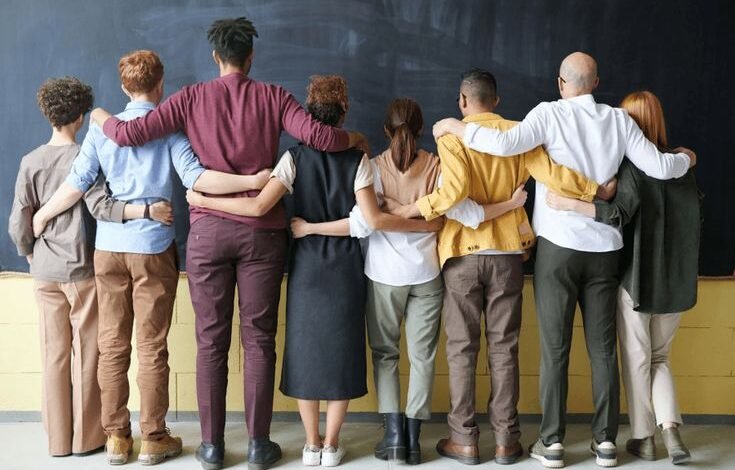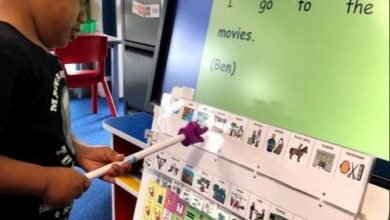History of Education Society Syllabus: Overview & Key Topics
History of Education Society Syllabus: Overview & Key Topics

Education is the foundation of any society. It shapes individuals, cultures, and even entire nations. Over centuries, the way we teach and learn has transformed dramatically, with the evolution of the syllabus playing a central role in this progression. This blog explores the rich history of education, the origins and development of the syllabus, its societal influence, and its global significance. By understanding these historical and modern-day dynamics, we can better appreciate the challenges and opportunities in shaping the future of education.
Evolution of the Syllabus
Early Educational Systems and Syllabus Development
Long before organized formal education, learning was an informal transfer of skills and knowledge from one generation to the next. Prehistoric societies focused on passing down essential survival skills like hunting, farming, and shelter-building.
The first traces of structured education appeared in ancient civilizations like Mesopotamia, Egypt, and India. Syllabi were minimal, focusing on religious teachings, literacy, and numeracy. For example, during the Vedic period in India, education emphasized the recitation of sacred texts, while ancient Greek education under philosophers like Plato and Aristotle revolved around critical thinking, logic, and philosophy.
Medieval times saw the rise of cathedral schools and universities in Europe. Syllabi during this era became more structured, incorporating subjects like theology, grammar, rhetoric, and arithmetic—the foundation of the “trivium” and “quadrivium” in classical education.
Changes in Syllabus Content over the Years
The Renaissance marked a dramatic shift in syllabus content as secular subjects like art, literature, and sciences gained prominence. By the 18th and 19th centuries, as industrialization demanded new skills, education began to reflect vocational needs. Civic education, geography, and modern sciences started appearing in school curriculums.
The 20th century saw widespread reforms. Standardized education systems emerged, and syllabi became more diverse with electives, specialized coursework, and subjects catering to global perspectives. The democratization of education—with laws mandating primary and secondary education—led to more comprehensive and universal curricula.
The Societal Impact
How Syllabus Changes Have Shaped Society
A syllabus serves as a societal blueprint, shaping individuals and collective knowledge. For example:
- Scientific Revolutions: The inclusion of science in 19th-century curriculums accelerated technological innovations, fundamentally transforming economies and lifestyles.
- Civic Values: Civic education promoted ideas of democracy, equality, and human rights. The introduction of these subjects reinforced active citizenship in modern societies.
- Gender Equity: Over time, curricular reforms played a role in breaking gender-related barriers. Women’s access to education and inclusion in training fields like mathematics, engineering, and technology increased social progress.
Historical Examples of Syllabus Changes Influencing Society
- The Enlightenment Era (17th–18th Century): During this period, an emphasis on logic, reason, and exploration led to revolutionary changes such as the American and French Revolutions.
- Post-World War II Education Systems: The post-war syllabi focused on rebuilding nations through STEM education, fostering stability and development in war-torn regions.
Global Perspectives
A Comparative Analysis of Education Systems
Education systems and syllabi differ substantially around the world, driven by cultural and socio-economic factors.
- Finland: Ranked highly for its focus on holistic development, Finland’s syllabus emphasizes student well-being, creative thinking, and collaborative learning.
- Japan: Known for its rigorous academic standards, Japan’s syllabus focuses on discipline, ethics, and respect for tradition, alongside subjects like math and science.
- United States: A flexible system with emphasis on choice, allowing students to explore diverse fields through electives.
The Impact of Globalization on Education Syllabi
Globalization has led to shared knowledge systems and the standardization of certain curricula. For instance:
- International Baccalaureate (IB): A globally recognized curriculum preparing students for intercontinental work environments.
- Computer and Digital Literacy: With a global shift towards technology, computer science is a standard subject across education systems.
At the same time, globalization has created challenges, such as balancing cultural uniqueness with international educational standards.
Future Trends and Challenges
Predictions for the Future of Education
Education and syllabus design are poised for dramatic transformations in the coming decades, influenced by technology and emerging pedagogies. Key trends include:
- Personalized Learning: AI tools will allow for custom-tailored syllabi, adapting to each student’s pace and preferences.
- Interdisciplinary Education: The growing requirement for creative problem-solving will lead to syllabi blending traditional disciplines like biology with emerging fields like artificial intelligence and robotics.
Current Challenges in Syllabus Design and Implementation
Despite progress, syllabus designers face numerous challenges:
- Addressing cultural relevance to meet the diversity of modern classrooms.
- Balancing traditional values with innovation in education.
- Bridging the urban-rural education divide caused by unequal access and resource distribution.
- Ensuring affordability of inclusive and quality education.
Understanding the Past, Shaping the Future
The history of education and syllabus design shows us that learning is much more than knowledge transfer—it’s a dynamic force that shapes society’s very fabric. By appreciating the evolution of the syllabus and its global perspectives, we can make informed decisions to create inclusive, adaptable, and forward-thinking syllabi.
Whether you’re an educator, student, or policymaker, this exploration calls upon you to reflect on how we all play a role in shaping the future of education. Start the conversation today—ensure that education continues to evolve to meet the needs of our rapidly changing world.



